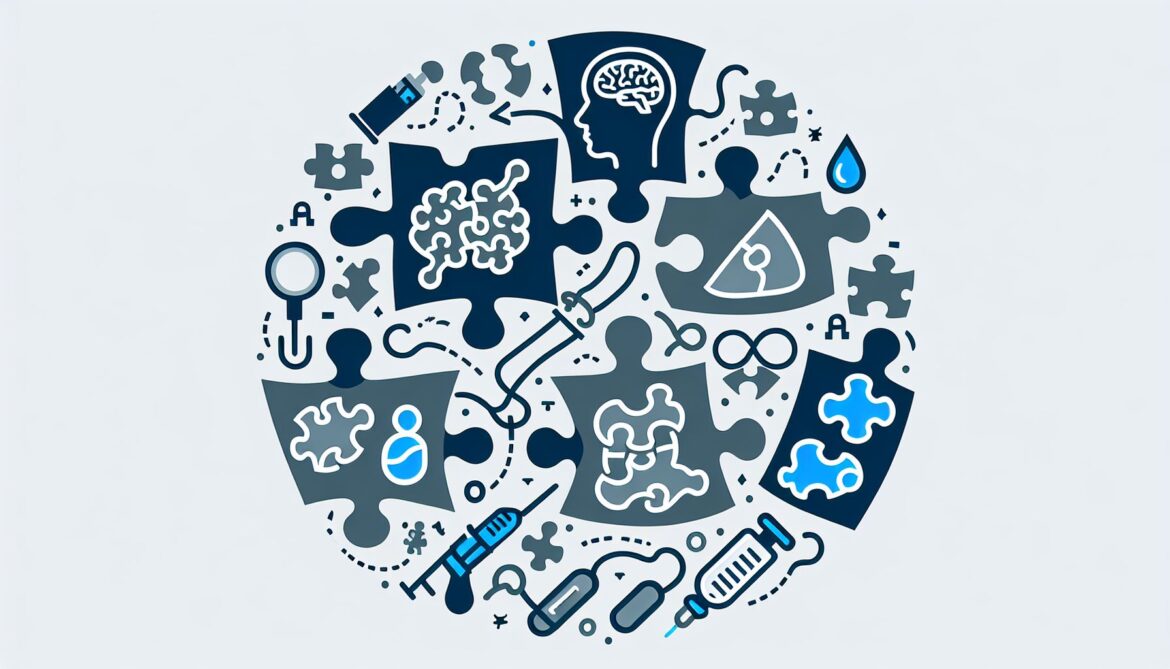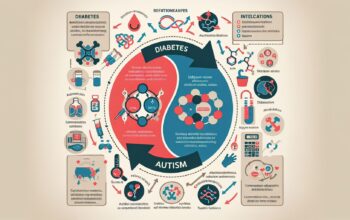As you navigate the complexities of health conditions, there are times when some might be interconnected in ways you may not anticipate. One such connection that has been relatively unexplored yet intriguing is the relationship between diabetes and autism. According to statistics from the Centers for Disease Control and Prevention (CDC), in 2020, about 1 in 54 children in the United States is diagnosed with autism spectrum disorder, and the prevalence of diabetes in children stands at 210,000 for those below the age of 20. The coexistence of these conditions raises crucial medical and health concerns that need to be thoroughly explained and understood.
Opening the Door to Medical Complexity
Dealing with long-term health issues is challenging on its own. When two conditions like diabetes and autism coexist, the challenge of understanding, diagnosing, and treating becomes even greater. While the relationship between diabetes and autism is not completely understood, emerging studies suggest a significant correlation.
A 2018 study from the University of Cambridge found a significant statistical link between women who experienced gestational diabetes and had a child diagnosed with autism spectrum disorder. Furthermore, a study by researchers at the City of Hope in California in 2018 discovered an increased risk of children developing autism if the mother had type 1 diabetes.
The reasons behind this possible link are not yet completely clear, but it’s believed that increased inflammation or uncontrolled blood sugar could potentially affect brain development in the womb.
Diabetes and Autism: A Delicate Balance
If a child is diagnosed with both conditions, it is crucial to understand that the care needed for diabetes and autism individually can sometimes conflict.
Autism is a complex neurological disorder that affects a person’s social interaction and communication. Individuals diagnosed with an Autism Spectrum Disorder (ASD) often thrive with routine and predictability. However, the treatment of diabetes, especially for those needing insulin injections, can be unpredictable and vary from day to-day. Consequently, these changes can be disturbing for a person with autism.
On the flip side, the discipline and routine that come with managing diabetes can prove beneficial for individuals with ASD. Their adherence to routines can assist in maintaining a regular testing and medication schedule, leading to better diabetes management.
The Need for Tailored Treatment Plans
In dealing with the co-occurrence of diabetes and autism, individual treatment plans are crucial. A plan that takes into consideration the unique needs and conditions of these individuals can aid in efficiently managing both conditions concurrently.
It’s recommended that a multidisciplinary team, including a psychologist, dietician, endocrinologist, and pediatrician, work together to develop and implement these treatment plans. This approach ensures that all aspects of the individual’s condition are considered.
Emphasizing the Importance of Regular Screening
Given the potential link between diabetes and autism, regular screenings for both conditions are crucial. Identifying these conditions early allows for prompt intervention that may improve overall health and quality of life.
For example, if a mother is diagnosed with gestational diabetes, it’s vital to closely monitor the child for signs of autism. Likewise, women with pre-existing diabetes planning to conceive could benefit from counseling about the potential risks to their offspring.
Sharing Knowledge to Enhance Understanding
The relationship between diabetes and autism can be a complex and confusing territory to navigate for individuals and their caregivers. By sharing insights and increasing awareness, you can ensure a better understanding and foster a more inclusive environment for those managing these health conditions.
Remember, everyone’s health journey is unique. Whether you are a healthcare professional or a person with a loved one diagnosed with either or both conditions, knowledge is power. The more one understands about diabetes and autism, the better they can be prepared for the challenges and triumphs that come along the journey.
Conclusion
While the correlation between diabetes and autism is still not thoroughly understood, existing studies point out that there may be a significant relationship between the two. By understanding these connections, you can be better prepared to manage these conditions should they coexist. As research continues to evolve, it is essential to stay updated and informed about the potential links between such conditions and the strategies health care professionals are using to address them. Ultimately it’s about enhancing the quality of life for individuals living with diabetes and autism.




